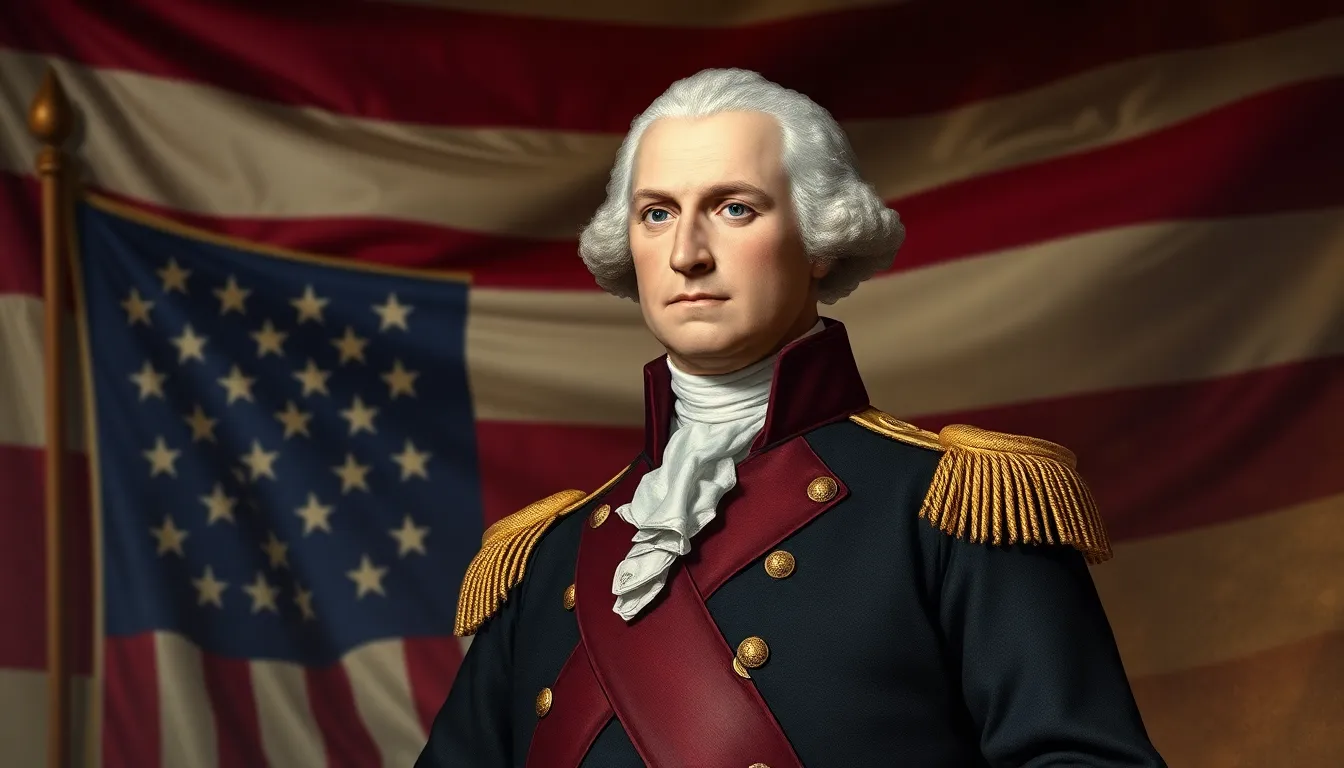History isn’t just a collection of dusty old books and boring dates. It’s a vibrant tapestry woven with the lives of famous figures who shaped our world in ways that are both inspiring and downright entertaining. From the audacious antics of Cleopatra to the brilliant inventions of Leonardo da Vinci, these personalities didn’t just make headlines; they made history—and often with a flair for the dramatic.
Table of Contents
ToggleOverview of Famous People in History
History consists of pivotal figures whose actions shaped societies and cultures. Their contributions span various fields such as politics, science, art, and social movements. Historical figures like Julius Caesar, whose military strategies transformed Rome, demonstrate the power of leadership.
Marie Curie’s groundbreaking research in radioactivity exemplifies how scientific advancements can revolutionize understanding. Artists such as Vincent van Gogh illustrate the lasting impact of creativity on culture and perception.
Moreover, civil rights leaders like Martin Luther King Jr. inspired movements that promoted equality and justice. Their legacies continue to influence contemporary society, highlighting the importance of advocacy.
Explorers, too, like Christopher Columbus, expanded geographical knowledge and connected different parts of the world. Their endeavors fostered new trade routes, altering global dynamics.
In literature, figures such as William Shakespeare not only entertained but also challenged societal norms and explored complex human emotions. Their works remain foundational in education and art today.
These examples underscore that famous individuals are not just names in textbooks; they represent a rich tapestry of human experience that shapes the modern world. Engaging with their stories offers insights into the values and struggles faced throughout history, making the past relevant to present challenges.
Influential Leaders
History is marked by leaders who shaped societies, politics, and entire nations. Their decisions often resonate through time, influencing generations.
Political Figures
Political leaders drive the courses of their countries. Figures such as George Washington laid the foundations of democracy in the United States. Nelson Mandela fought against apartheid, advocating for racial equality in South Africa. Winston Churchill provided essential leadership during World War II, bolstering British resolve against tyranny. These individuals faced immense challenges yet remained steadfast in their quests for change. Each political figure established legacies that continue to inspire leaders worldwide.
Revolutionary Icons
Revolutionary icons challenge the status quo through courage and vision. Mahatma Gandhi demonstrated the power of nonviolent resistance, rallying millions to the cause of Indian independence. Simón Bolívar led multiple South American countries to freedom from colonial rule. Che Guevara became a symbol of rebellion, advocating for change in Latin America. Each revolutionary icon not only fought for their beliefs but also ignited movements that inspired others. Their actions disrupted established systems and reshaped their societies.
Trailblazing Scientists
Trailblazing scientists have pushed the boundaries of knowledge, leading to significant advancements in various fields. Their work has transformed how society understands the world.
Pioneers of Innovation
Marie Curie stands out as a pioneer in radioactivity, being the first woman to win a Nobel Prize. Albert Einstein proposed the theory of relativity, fundamentally altering physics. Isaac Newton’s laws of motion laid the groundwork for classical mechanics. Charles Darwin introduced the theory of evolution through natural selection, reshaping biological sciences. These figures, among others, have advanced human understanding and laid the foundation for future scientific discovery.
Impact on Society
The contributions of these scientists have profound societal impacts. Curie’s research improved medical treatments, particularly in cancer therapy. Einstein’s theories revolutionized technology, influencing everything from GPS to nuclear energy. Newton’s principles enabled advancements in engineering and technology, shaping our modern world. Darwin’s work prompted discussions on human origins and biodiversity, encouraging conservation efforts. Their legacies continue to inspire current and future generations, demonstrating the vital importance of scientific inquiry.
Cultural Icons
Cultural icons exemplify the creativity and vision that shape human experience and influence societies. Each icon leaves an indelible mark through art, literature, and performance, transforming cultural landscapes.
Artists and Writers
Talented artists and writers have played crucial roles in shaping human expression. Vincent van Gogh, through emotionally charged paintings, captured the essence of human experience and emotions. Similarly, William Shakespeare’s plays examined complex subjects like love and power, reflecting societal dynamics. Pioneering authors such as Jane Austen critiqued social structures and gender roles, offering valuable insights into their era. Each figure’s unique contributions continue to inspire modern creators and shape contemporary artistic expression.
Role in Shaping Culture
Cultural icons substantially influence societal values and beliefs. Frida Kahlo’s vibrant self-portraits challenge conventional notions of identity, inspiring conversations on gender and race. In the realm of music, Bob Dylan’s thought-provoking lyrics became anthems for civil rights movements, promoting social change. Through innovative inventions like the printing press, Johannes Gutenberg revolutionized access to literature and knowledge. These individuals, among countless others, demonstrate that cultural icons often spearhead movements that redefine norms and inspire future generations.
Groundbreaking Activists
Activists throughout history have played pivotal roles in advocating for justice, equality, and humanitarian efforts, shaping society for future generations. Their efforts resonate across time, demonstrating the power of individuals to drive change.
Social Justice Leaders
Social justice leaders like Martin Luther King Jr. fought against racial inequality in the United States. He championed nonviolent protests, mobilizing communities to demand civil rights. Rosa Parks sparked the Montgomery Bus Boycott by refusing to give up her seat, igniting a movement that challenged systemic racism. Malcolm X advocated for Black empowerment, emphasizing self-determination and pride, influencing countless individuals. Each of these leaders inspired generations, highlighting the importance of standing against oppression.
Humanitarian Efforts
Humanitarian efforts gained significant traction through figures like Mother Teresa, who dedicated her life to serving the impoverished in Kolkata, India. She founded the Missionaries of Charity, providing food, shelter, and care to the destitute. Nelson Mandela’s commitment to combating poverty and inequality in South Africa stands equally notable, as he dedicated his life to human rights and social justice. Malala Yousafzai bravely advocated for girls’ education, even after surviving a Taliban assassination attempt. These individuals exemplify compassion, demonstrating the profound impact of dedicated humanitarian work on global society.
Conclusion
Famous individuals in history embody the essence of human experience and resilience. Their stories reveal the complexities of society and the enduring impact of their contributions. From revolutionary leaders to groundbreaking scientists and cultural icons, each figure has shaped the world in unique ways.
These historical personalities inspire current and future generations to strive for greatness and challenge the status quo. Their legacies serve as reminders of the power of determination and creativity in overcoming obstacles. By studying their lives, society not only honors their achievements but also gains valuable insights into the ongoing struggle for progress and justice.







